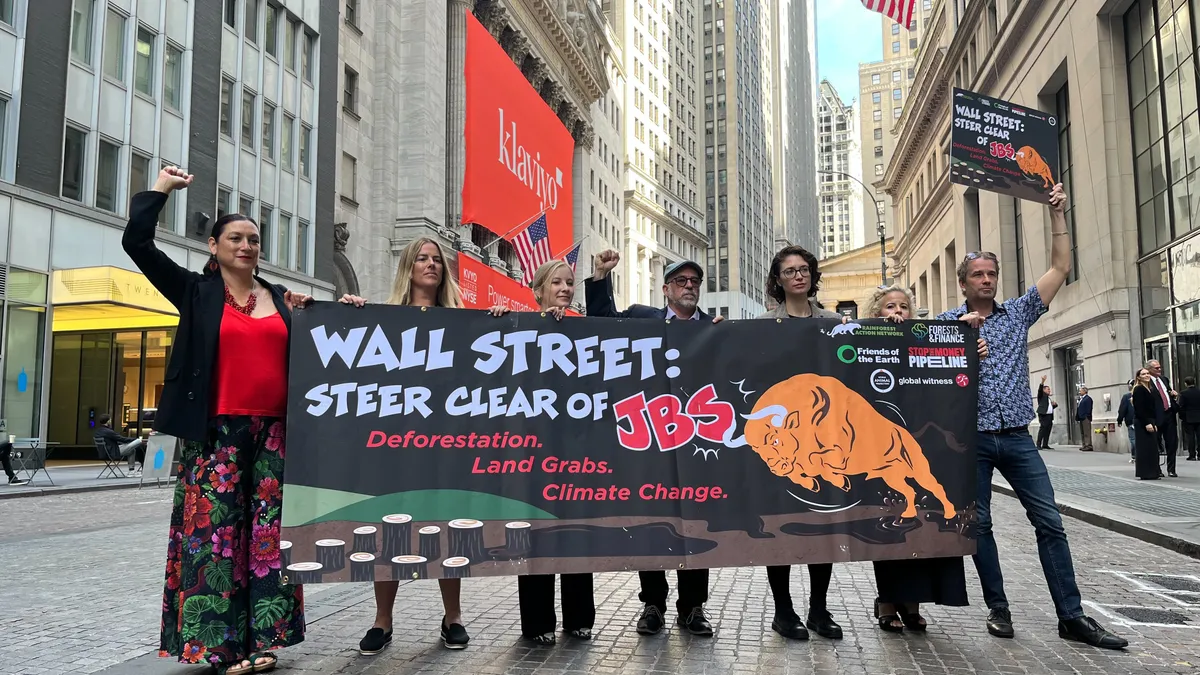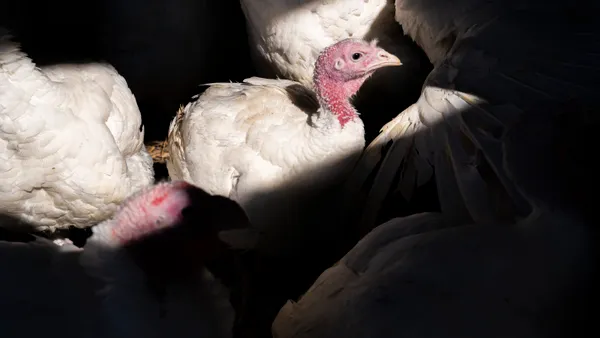Dive Brief:
-
Climate protestors outside Wall Street on Wednesday warned investors to “steer clear” of JBS’ proposed listing on the New York Stock Exchange, saying it gives more power to the founding family of the world’s largest meat company.
-
The activists blasted the meatpacking giant for a proposal to restructure the company and hand 85% of the voting rights to the Batista family. The family currently controls 48.8% of shares and the new structure would reduce minority shareholders’ ability to guide the company on issues such as human rights protections or environmental impacts, according to an investor brief from the climate groups.
-
In response, JBS said it’s confident the proposed listing will create opportunities for all investment partners and accelerate efforts to enhance corporate governance and transparency. “We are always open to dialogue with thoughtful stakeholders who share our commitment to a more sustainable future,” the company said.
Dive Insight:
JBS is already publicly traded on the São Paulo Stock Exchange, but its proposal also to sell shares in New York could generate more cash to grow the meatpacker’s operations at a faster rate.
The Brazil-based company, which owns brands such as Swift, Pilgrim’s Pride and Certified Angus Beef, has made multiple attempts to initiate a public offering in the U.S. An attempt was stalled in 2017 after JBS executives Joesley and Wesley Batista admitted to bribing more than 1,800 politicians and officials as part of a major corruption scandal. Both were released from jail in 2018 after serving six-month sentences.
J&F Investimentos, which holds the Batista family’s controlling stake, paid $3.2 billion for its role in the scandal. In 2020, the firm also paid $155 million in fines to U.S. authorities over bribes paid to Brazil. The COVID-19 pandemic reportedly delayed another attempt for JBS to go public in the U.S. until this year.
Outside the New York Stock Exchange, protestors from a raft of 16 advocacy groups warned the Batistas could emerge with much stronger voting rights than they have currently. This would overwhelmingly dilute the voting rights for minority shareholders and reduce their influence on investor decisions, ranging from staff remuneration and acquisitions to environmental and governance matters.
“Combined with the Batistas’ track record, this raises serious questions about JBS’ claims the dual listing will ‘enhance transparency and strengthen corporate governance,’” the groups said in an investor brief endorsed by Oxfam, World Animal Protection, Mighty Earth and others.
In addition to the revamped voting structure, the 13-page brief highlighted how JBS has been implicated in climate change, deforestation, biodiversity loss, human rights abuses and corruption scandals through its supplier network or directly.
Protestors also called on U.S. banks to cease financing businesses abroad that are responsible for deforestation. Bank of America and Citigroup are some of the latest financiers to underwrite JBS bonds, reported Brazil Journal this month. BlackRock and Vanguard also have a history of investing in JBS.
“[Investors] should really think twice before putting their money with JBS,” Ashley Thompson, a senior policy advisor with Global Witness, said at the demonstration Wednesday.











